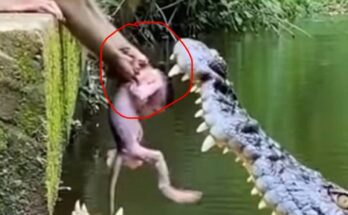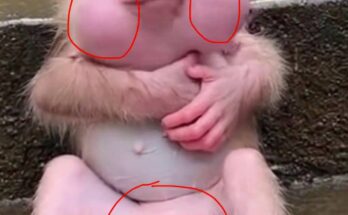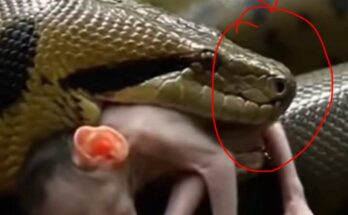
When we think of “divorce,” we typically think of humans — the heartbreak, the emotional toll, the loneliness that can follow a separation. But what happens in the wild when monkeys break bonds? Do they experience something similar to emotional distress when their relationships end?
Surprisingly, the answer is yes. Many species of monkeys form strong social and sometimes even romantic partnerships. These connections may not come with legal commitments, but they are emotionally meaningful. When those bonds are broken — whether through forced separation, a partner leaving for another, or death — the monkeys involved often show signs of deep emotional response.
In species such as gibbons, titi monkeys, and owl monkeys, monogamous pairings are common. These primates form long-term partnerships that include grooming, co-sleeping, raising offspring together, and staying physically close throughout the day. When one partner disappears, the other often displays signs of stress: lack of appetite, restless behavior, vocal distress calls, or withdrawal from the group.
Similarly, in species with looser pair bonds, such as baboons or macaques, social alliances still matter deeply. Males and females often form “friendships” that include grooming and mutual support. If these bonds are broken — whether due to social hierarchy shifts or one partner moving to another group — the remaining individual often appears visibly affected. Scientists have recorded increased cortisol (stress hormone) levels in monkeys after such separations, as well as behavior resembling sadness or anxiety.
One particularly touching example comes from observations of chimpanzees, our closest relatives. When two bonded chimps are separated, they often look for each other, call out, and even refuse to eat. If reunited, they may embrace for long periods, vocalizing softly — showing emotional relief and a desire to reconnect.
Young monkeys, too, suffer emotional distress when separated from caregivers or friends. Infant monkeys removed from their mothers often exhibit depression-like symptoms: clinging to inanimate objects, rocking themselves, or losing interest in food and play. These reactions are strong evidence that primates not only feel attachment, but also experience emotional pain when that attachment is broken.
While monkeys don’t experience “divorce” in the human sense, the end of a close bond — whether due to social dynamics or natural causes — impacts them deeply. Their emotional responses mirror our own in many ways, underscoring the evolutionary roots of love, loss, and connection.


